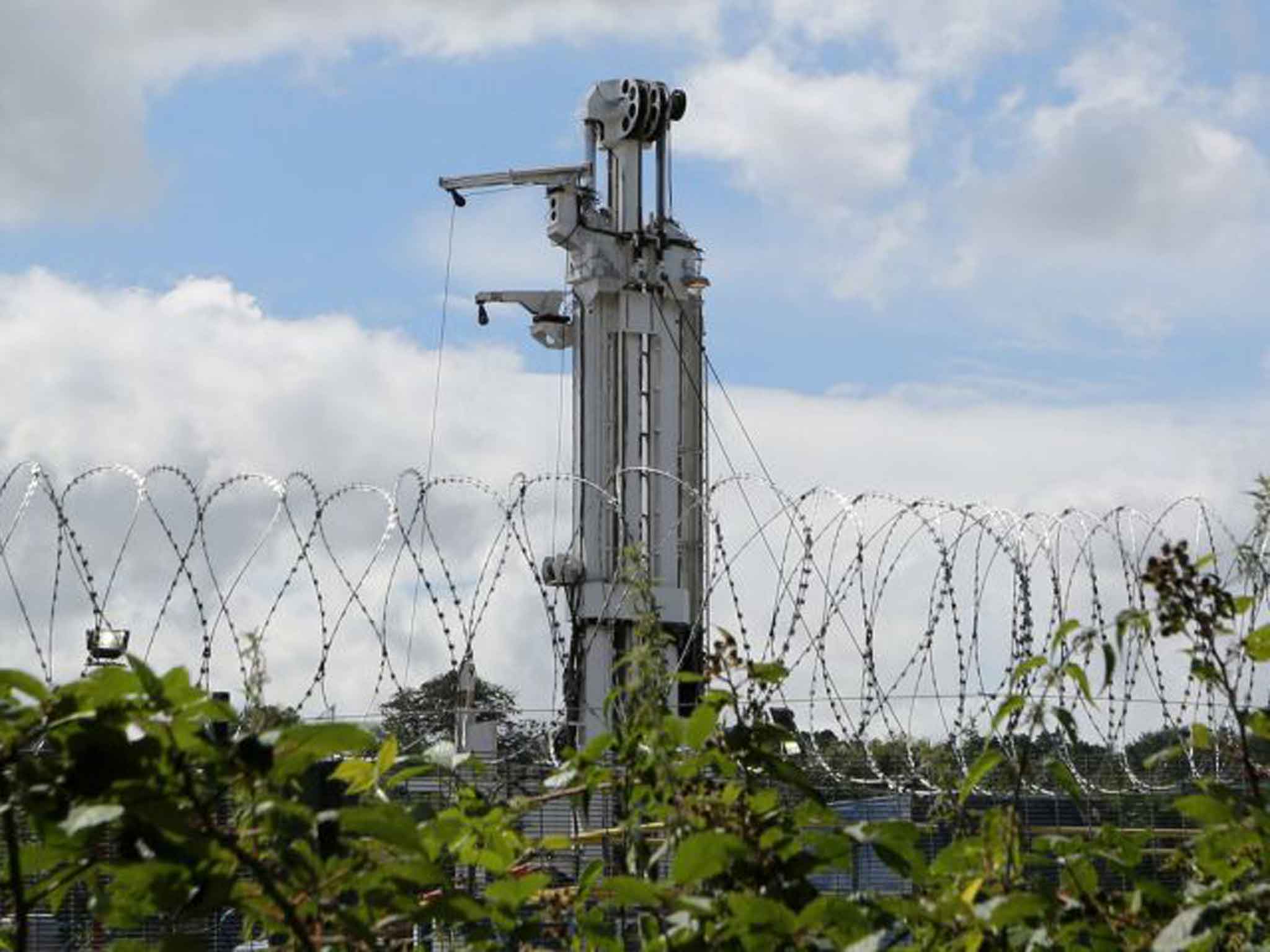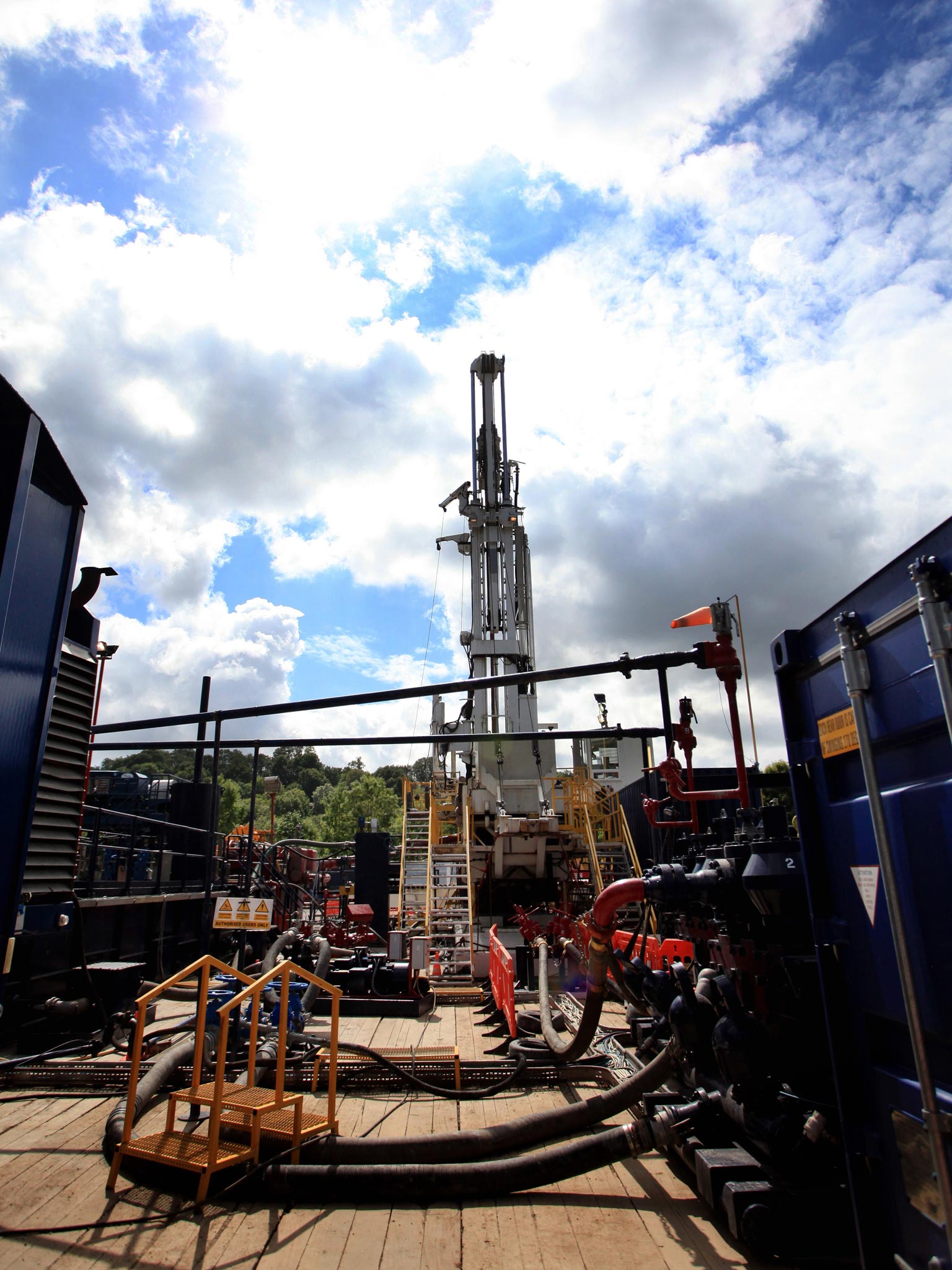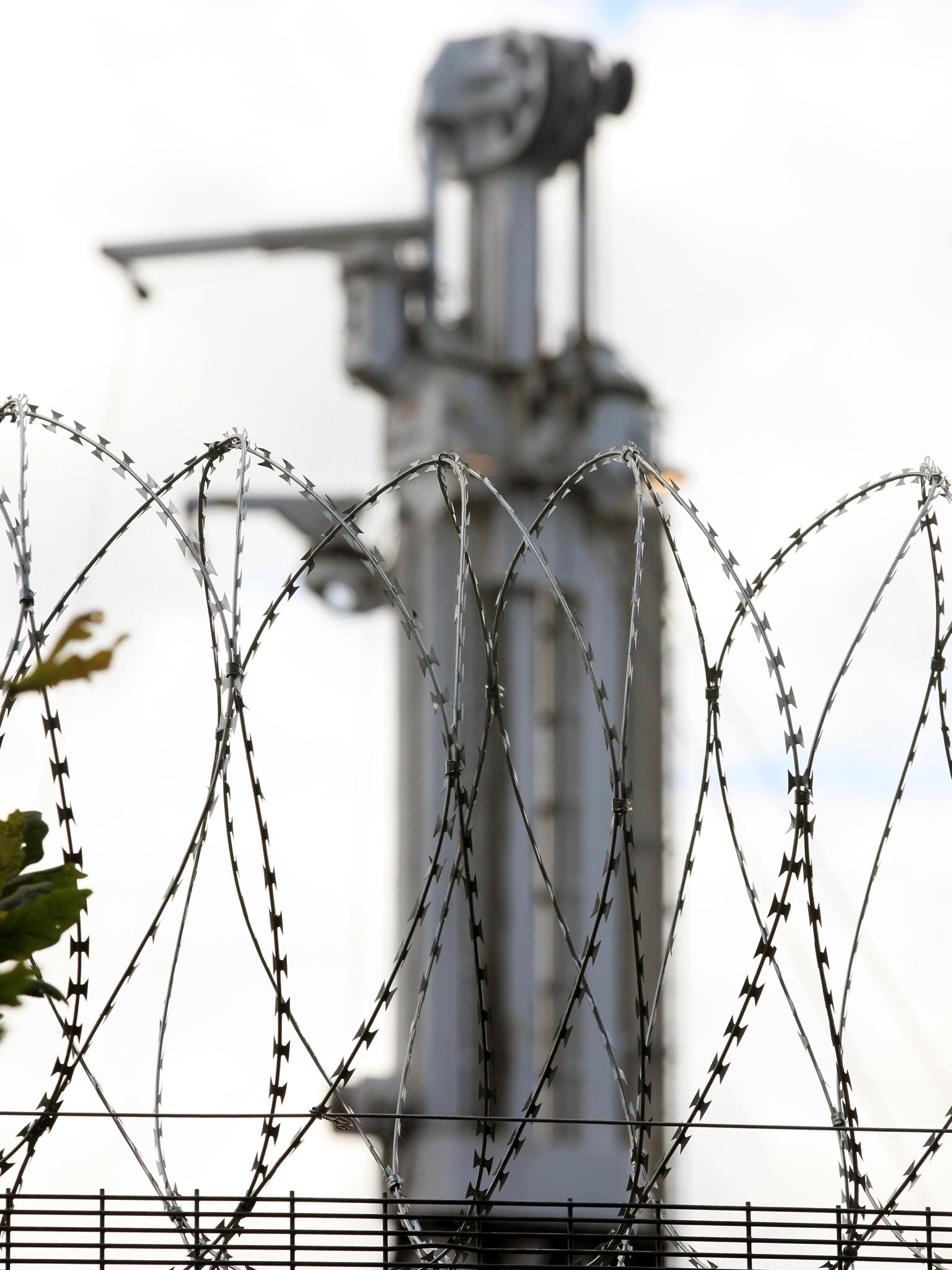‘I’ve had verbal abuse every day’: The other side of Balcombe's fracking row
Tom Bawden is invited beyond the police lines to hear how Cuadrilla staff are coping with the campaigners
Your support helps us to tell the story
From reproductive rights to climate change to Big Tech, The Independent is on the ground when the story is developing. Whether it's investigating the financials of Elon Musk's pro-Trump PAC or producing our latest documentary, 'The A Word', which shines a light on the American women fighting for reproductive rights, we know how important it is to parse out the facts from the messaging.
At such a critical moment in US history, we need reporters on the ground. Your donation allows us to keep sending journalists to speak to both sides of the story.
The Independent is trusted by Americans across the entire political spectrum. And unlike many other quality news outlets, we choose not to lock Americans out of our reporting and analysis with paywalls. We believe quality journalism should be available to everyone, paid for by those who can afford it.
Your support makes all the difference.Leaving the West Sussex village of Balcombe, you could be forgiven for thinking you were about to enter a festival. Dozens and dozens of tents, many in rows two or three deep, line hundreds of feet of grass verges on both sides of the London Road, giving the distinct impression that a Glastonbury, Latitude or Green Man is waiting nearby.
But this is actually a protest against a highly controversial and now very public exploration project that could eventually lead to fracking. It is a point which becomes clear when you reach the gate to the site and the carnival atmosphere gives way to a show of strength from ten fluorescent-jacketed police officers backed by a group of G4S security staff in similarly bright outfits.
The population on both sides of the divide will become considerably larger today, when about 500 additional protestors descend on the site, most of them planning to camp for up to five days. It is a move that threatens to escalate a three-week protest that has so far involved about 200 people and has yet to fall out of the national headlines.
The additional protesters, a coalition of opponents known as No Dash for Gas, have said they plan to disrupt operations and Cuadrilla, the fracking company working on the site, is so concerned that today it decided to stop drilling until things calm down.
“After taking advice from the Sussex Police, Cuadrilla is scaling back operations ahead of this weekend’s No Dash for Gas event,” said a spokesman for the company, which is chaired by former BP chief executive Lord Browne.
Cuadrilla, which admits the level of protests have taken it by surprise, won’t turn the drill back on again until it’s confident that the threat of a breach to the site no longer exists and it can be operated safely. This is not expected to be until at least the end of next week.
Although Cuadrilla hasn’t applied for a fracking permit, it has not ruled out its use and opponents are concerned the practice will eventually be used on the site. Known as hydraulic fracturing, the process releases oil and gas from shale by blasting a mixture of sand, water and chemicals into the rock at high speed. The practice has been linked to earthquakes and ground-water pollution.
Another sign of Cuadrilla’s concern is that it has invited a group of journalists to look at the site, as part of a hastily convened charm offensive ahead of the enlarged protest.
And so, following a rigorous passport inspection by a very security-conscious security guard, The Independent found itself standing in the highly-controversial football-pitch sized site this afternoon.
A large white derrick, or drilling rig, takes centre stage, presiding over the site’s sole exploratory well, the hole that lies at the centre of the protest. Measuring 13.5 inches wide at the top and reverse-telescoping its way down to 8.5 inches at the lower reaches, this controversial hole has been bored to a depth of about 1,300 feet in the two weeks since drilling began and Cuadrilla aims to carry on till it descends to 3,000 feet in a month or so’s time.

The drilling speed varies according to the type of rock encountered, “so it could be 5 feet an hour on some geology, or it could be 50, 60 or 70 on others, it just varies a lot”, said one worker who, like his colleagues, did not want to be named for fear of reprisals.
Between 20 and 30 people man the site at any one time – the only women in evidence were journalists and public relations executives – with a handful of staff sleeping over in huts.
Until now, the drilling has been 24/7 – albeit with the odd break to collect “core” samples at each depth to help identify the best oil seams and to cement the well sides.
Standing by two large water tanks – the main one green and the backup white – another Cuadrilla worker explains that, on average, three to four vehicles visit the site a day, mostly delivering water and equipment and taking away waste.
Although the protests have been peaceful, the worker said he has frequently been on the receiving event of verbal abuse as have many of the staff entering and leaving the site.
“I’ve had verbal abuse on a daily basis, but not physical. It’s intimidating for staff, absolutely. That they can come to your place of work and take photos in your face, it’s not very nice,” he said.
“I’ve never seen anything like this. The last three or four days have been better, the first week was pretty awful. There were people shouting stuff through megaphones,” he said.
What kind of stuff?
“Discussing how bad the industry is, how it’s going to kill everybody, how could you work for such a company. All we’re doing is drilling a hole,” he said.
Although Cuadrilla may only halt drilling for a few days, opponents of the company’s activities in the area believe they have scored a huge symbolic victory.
The decision adds to signs in the past few days that the protest is really affecting Cuadrilla.
The initial sign came on Wednesday when Matt Lambert, Cuadrilla’s director of government and public affairs, said for the first time – and seemingly out of the blue – that while the Balcombe site is “ideal” for exploration, other sites in the licence area are probably more suited to full-scale production.
A Cuadrilla spokesman denied that its decision to strongly downplay the prospect of production on the site were not related to the protests.
“It’s nothing to do with the protests, but there may be other sites in the region with better infrastructure and transport links,” he said.
But Andrew Pendleton, Friends of the Earth’s head of campaigns said: “Cuadrilla’s rhetoric is shifting fast in the face of overwhelming local opposition.”
But while it continued to insist that other sites were more suitable for production, Cuadrilla said they didn’t have any in mind and hadn’t applied for any other exploration licences in the area. They also admitted that it can take several years to get the necessary approvals for production.
This means that the company is either being disingenuous in its claim that production is unlikely to occur in Balcombe, has been caught unawares by the protests and doesn’t have a back-up plan or, having secured the licence, that it is happy to take its time.


Join our commenting forum
Join thought-provoking conversations, follow other Independent readers and see their replies
Comments